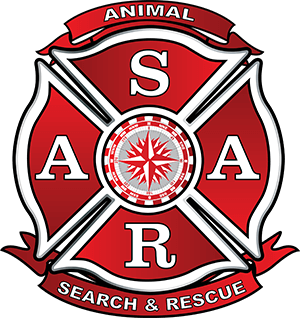Code Venom Trauma Solutions Training

Venom Trauma and Disaster Response Training
Any of the Code 3 Venom classes can be scheduled with any of the ASAR classes to take field training to the next level! These classes are essential for team leaders and disaster response field management; but every responder at every level will be excited to experience these intense focus curriculums.
Pre-Hospital Envenomation & Field Response (8 hrs)
This class helps the responders to prepare for the chance of ENVENOMATION in and austere/wilderness/operational type setting. Old and outdated methods previously used and are still being taught. Too often we worry more about mortality instead of morbidity and co-morbitities. This class is designed to show you what to do and more importantly,what not to do in the event that this occurs. How to develop protocols and planning to achieve optimal outcome until definitive care is available.
Course Topics
- Public Misconceptions
- Plan development
- Hazard awareness
- Species Identification
- Equipment and handling
- Patient packaging
- Mock scenarios
Participant Requirements
- No weapons in class
- Closed toe footwear/boots
- Bring writing utensils and notebook for notes
- Laptops and tablets welcome
Requirements to Host Class:
- Private classroom
- Ability to host live animals (supplied by instructors)
Venomous or Non-Venomous Identification (4 hrs)
This class helps the responders to form strong identification methods and strategies, utilizing memory and up to date resources and databases to correctly identify the animals present in an operational environment.
Course Topics
- Public Misconceptions
- Dispelling myths and public misconception
- Database reviews
- Equipment and Handling
- Species Identification
Requirements to Host Class:
- Private classroom
- Ability to host live animals (supplied by instructors)
Participant Requirements
- No weapons in class
- Closed toe footwear/boots
- Bring writing utensils and notebook for notes
- Laptops and tablets welcome
Disasters and Wildlife - Exotic and Indigenous (8 hrs)
Handling, capture and restraint methods along with natural history and husbandry will be discussed and demonstrated. Tools, both improvised and commercial will be discussed and utilized in order to provide for the safety of the animal and the responders. We will discuss developing protocols and plans to be implemented for disease control, zoonotic issues, escape management, decon techniques, humane euthanasia, first aid and resources available.
Course Topics
- Disease control
- Zoonotic concerns
- Decontamination procedures
- Humane euthanasia
- Escape management
- Disaster planning
- First - aid
- Resource identification
Requirements to Host Class:
- Private classroom
- Ability to host live animals (supplied by instructors)
Participant Requirements
- No weapons in class
- Closed toe footwear/boots
- Bring writing utensils and notebook for notes
- Laptops and tablets welcome
Trauma for Animal Responders (8 hrs)
This class will help responders be prepared for traumatic injuries that can occur in an operational field setting. Dealing with animals in stressful situations can often lead to bites, deep punctures, fractures and sometimes major bleeding. Often we forget that in order to reach these animals, we are exposed to major hazards ourselves. Collapsing structures, underwater and unseen objects that can cause crush injuries, massive bleeding from lacerations, traumatic amputation and avulsions, impalement, gunshot/knife wounds, equipment malfunction, drowning, electrocution....the list goes on. While we hope we will never have to experience these, the reality is that is is a possibility, no matter how prepared we think we may be. We will learn how to build a kit that can address these injuries, plans and protocols to recognize and treat life threatening issues before EMS providers can arrive.
Practical applications and scenario driven classroom instruction will help responders build confidence and be able to utilize tourniquets, both commercial and improvised to stop a massive bleed, when to pack or not pack a wound, how to control the situation and environment surrounding, how to package and extricate to definitive care, basic anatomy, how to prioritize injuries, how to take basic vitals and what information to give to EMS providers.
Course Topics
- Contingency planning
- First-aid kit building
- Basic anatomy
- Vitals and Patient Assessment System
- Wound management
- Patient packaging and transport
- Reporting
Requirements to Host Class:
- Private classroom
- Ability to host live animals (supplied by instructors)
Participant Requirements
- No weapons in class
- Closed toe footwear/boots
- Bring writing utensils and notebook for notes
- Laptops and tablets welcome

Compassion Fatigue and PTSD (6 hrs)
This class is designed to help recognize the signs and symptoms we often miss. We often miss the subtle signs and warnings that our colleagues, and ourselves are in serious trouble. Responders are subjected the some of the worst incidents and often just “suck it up” and hold it all in. We must learn to recognize and respond with appropriate action in order to address the individual situation/s, along with the needs of the Team. We will discuss how to develop building team relationships, environmental stressors, when and how to reach out or report, how to cope with loss and where to go for help. Building a program that is a place of trust with no judgement with professional resources within the team and beyond.
Course Topics
- History and development
- Overcoming the stigma
- recognizing when there is a problem
- Resource Identification
- Coping with loss
- Long term considerations
Requirements to Host Class:
- Private classroom
- Ability to host live animals (supplied by instructors)
Participant Requirements
- No weapons in class
- Closed toe footwear/boots
- Bring writing utensils and notebook for notes
- Laptops and tablets welcome
